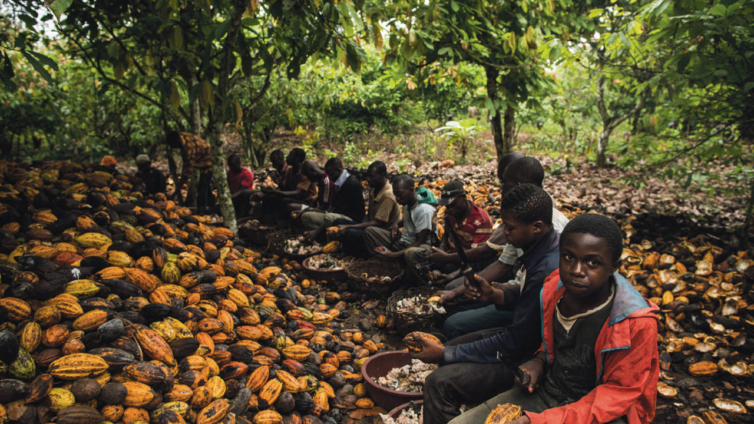Cocoa farmers in the Berekum West District of the Bono Region are demanding government action as a matter of urgency to further review the cocoa prices for the 2022/2023 season.
According to them, the recent upward adjustment is woefully inadequate and fails to take into account the high cost of living in the country.
In October, the government increased the farmgate price of cocoa beans by 21 percent, from GH¢660 to GH¢800 a bag.
That works out to GHS12,800 per tonne for the main crop season- 2022-2023, which began on October 7.
But the cocoa farmers are dissatisfied with the marginal increase.
According to one of them, Kwabena Amankona Diawo, the government has not adjusted prices in three years.
He is dissatisfied that the government will only raise the price by GHC140.00.
“This cocoa price adjustments we are talking about, the current government since coming into power six years ago, they haven’t increased the price of cocoa. When they finally increased it, only 140 cedis was added. As I stand here, I have two children in the training college, secondary school and primary. With this upward adjustment the government has made, what will become of my children in the training college?,” he asked.
Mr. Diawo said life has become extremely unbearable for his family.
He lamented how it was becoming difficult to take care of his three children.
Another cocoa farmer, Ernest Kay Kyere, accused the government of deliberately failing to improve their lives by ensuring a significant rise in the cocoa prices.
He went on to say that while cocoa farmers work hard to get their beans ready for export, which generates huge amounts of revenue for the government, they are underpaid.
“Every month, you people get money to buy food for yourselves and children and even use some to pay the school fees of your children. We the ones labouring hard on our cocoa farms – planting, weeding, watching it grow, plucking them, drying them – just so when I’m paid I can cater for my children’s school fees and to also buy food but the pay is not coming,” Mr. Kyere lamented.
Some also complained about the government’s failure to provide them with the requisite agrochemicals for the farms.
This, they believe, is hampering the yield and the growth of the cocoa sector.
Speaking to Joy Prime’s Brenda Antwi Donkor, another farmer, Nicholas Abina, is of the opinion that there will be an improved yield if government adequately incentivizes cocoa farmers.
Nicholas Abina said, “the help the government claims they give to cocoa farmers, I have never benefitted from it since I started farming in 1979. I have also not benefitted from the cocoa board scholarship that government gives to the children of farmers. So if the government wants more cocoa yield they should make sure that the farmers are remunerated adequately.”
According to the farmers, they are becoming impoverished by the day as a result of the high cost of living.
The chief of Jinijini, Nana Baffour Tutu Asare, also called on the government to come to the aid of the struggling farmers by providing them with adequate resources and chemicals.
Speaking on Prime Morning with Roselyn Felli, Wednesday, Public Relations Officer for the Ministry of Food and Agriculture, Bagbara Tanko, said that the government is only providing chemicals to deal with fall armyworm as part of the Planting for Food and Jobs Initiative.
He indicated that for all other agrochemicals, farmers are to get their own input on the open market.
Mr. Tanko further said that, due to the global economic challenges, farm input dealers are unable to purchase inputs for onward distribution.
Although some cocoa farmers are complaining of unavailability of government-subsidised fertilisers, the Food and Agriculture Ministry said its checks at the various regional offices revealed that there is enough stock.
Source: myjoyonline

